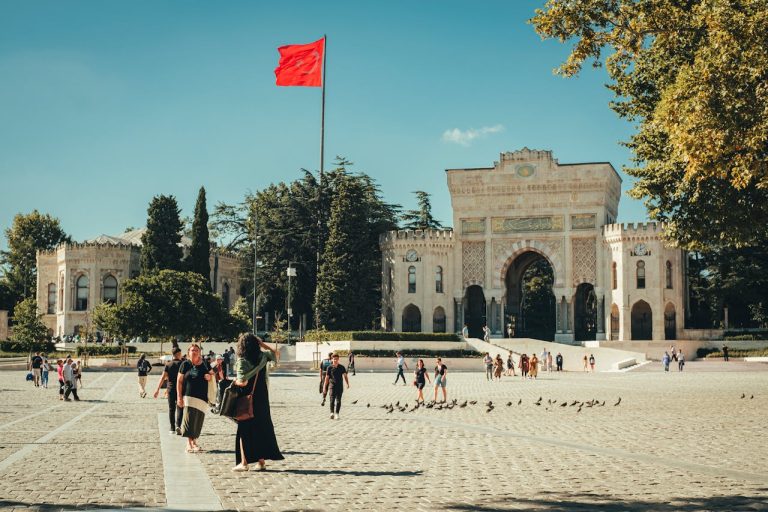The rise of remote work has transformed the global workforce landscape, allowing professionals to break free from the constraints of traditional office environments. As the number of remote workers continues to grow, an important question arises: Where can these digital nomads and remote professionals thrive financially? The answer lies in the delicate balance between the cost of living and income. This article will explore the global landscape of cost of living versus income, examining which cities and countries offer the best financial conditions for remote workers to maximize their earnings, savings, and quality of life.
The Remote Work Revolution
Remote work, once a niche option for freelancers and select industries, has now become mainstream. With advancements in technology, better internet access, and the global response to the COVID-19 pandemic, more companies have adopted remote work as a viable, long-term strategy. This shift has empowered employees to work from anywhere, giving rise to the concept of “geo-arbitrage,” where workers living in low-cost regions earn salaries from higher-income regions. Geo-arbitrage has led remote workers to seek destinations that offer lower living costs, favorable tax environments, and an improved quality of life while still earning a competitive income.
Factors That Affect Financial Success for Remote Workers
Several factors determine where remote workers can thrive financially. These include:
- Cost of Living: The overall expenses required to maintain a certain standard of living, including housing, transportation, healthcare, food, and utilities.
- Income Potential: The ability to earn a consistent income, either through freelance work, full-time employment, or entrepreneurial ventures. This is often influenced by the industry, job role, and geographical market.
- Taxes and Regulatory Environment: Countries and cities differ widely in terms of income taxes, business regulations, and other legal frameworks that impact how much income remote workers can keep after taxes.
- Currency Strength: Remote workers who are paid in strong currencies, such as the US Dollar, Euro, or British Pound, can maximize their purchasing power by living in countries where the local currency is weaker, reducing their expenses significantly.
- Quality of Life: Beyond finances, the overall quality of life, including safety, healthcare, internet infrastructure, and access to amenities, is a key factor for remote workers in choosing where to live.
Best Places for Remote Workers to Thrive Financially
Below are some of the best destinations where remote workers can maximize their income due to a low cost of living and high quality of life.
1. Chiang Mai, Thailand
Chiang Mai has long been a favorite among digital nomads and remote workers due to its affordable cost of living, warm climate, and vibrant expat community.
- Cost of Living: The cost of living in Chiang Mai is remarkably low, with monthly expenses ranging from $600 to $1,200, depending on lifestyle. Rent for a furnished apartment in the city center can be as low as $300 per month, while meals at local restaurants cost around $2-$5.
- Income Potential: Many remote workers in Chiang Mai work in tech, marketing, design, or freelance writing, earning in foreign currencies while living on Thai Baht. This creates significant financial leverage for remote workers.
- Quality of Life: Chiang Mai is known for its friendly locals, safe environment, and access to modern conveniences such as co-working spaces, reliable internet, and affordable healthcare.
2. Bali, Indonesia
Bali is another hotspot for remote workers, offering a beautiful island setting, low cost of living, and strong community of entrepreneurs and freelancers.
- Cost of Living: Remote workers in Bali can expect to spend between $800 and $1,500 per month. Rent for a comfortable apartment or villa is typically between $300 and $800 per month, and meals at local restaurants cost between $2 and $6.
- Income Potential: Many remote workers in Bali are involved in online business, coaching, e-commerce, and creative fields like photography and design. Earning a Western salary while living on Indonesian Rupiah can provide a high standard of living at a fraction of the cost.
- Quality of Life: Bali offers a relaxed lifestyle, stunning beaches, and a wealth of activities, from surfing to yoga retreats. Co-working spaces are abundant, and the island has a thriving community of expats and digital nomads.
3. Tbilisi, Georgia
Tbilisi is quickly becoming a remote work haven due to its affordability, ease of visa access, and growing infrastructure for remote workers.
- Cost of Living: The cost of living in Tbilisi is quite low, with monthly expenses ranging from $700 to $1,200. Rent for an apartment in the city center costs around $300-$500 per month, and a meal at a mid-range restaurant costs about $10-$15.
- Income Potential: Tbilisi’s favorable tax policies make it attractive for entrepreneurs and freelancers. The Georgian government has created a “Remotely from Georgia” program, allowing foreign workers to stay in the country for up to a year without a visa, creating an ideal situation for remote work.
- Quality of Life: Tbilisi offers a rich cultural experience, with a mix of old-world charm and modern amenities. Internet connectivity is strong, and the city boasts a growing number of co-working spaces.
4. Medellín, Colombia
Medellín, known as the “City of Eternal Spring,” offers remote workers a combination of perfect weather, affordable living, and a bustling digital nomad community.
- Cost of Living: Monthly living costs in Medellín range from $800 to $1,500, with rent for an apartment in a desirable area costing between $300 and $700 per month. Meals at local restaurants typically cost around $3-$8.
- Income Potential: Remote workers in Medellín often work in digital marketing, IT, and creative fields. Thanks to Colombia’s favorable exchange rate, remote workers earning in stronger currencies like the US Dollar or Euro can live quite comfortably.
- Quality of Life: Medellín is famous for its innovation, vibrant culture, and friendly locals. The city has excellent healthcare, good transportation, and reliable internet infrastructure.
5. Lisbon, Portugal
While Lisbon is more expensive than the other cities on this list, it offers remote workers the ability to thrive financially due to its balance of quality of life, access to European markets, and relatively affordable cost of living compared to other Western European capitals.
- Cost of Living: Living costs in Lisbon range from $1,200 to $2,500 per month. Rent in the city center is higher than in many other cities mentioned, ranging from $600 to $1,200, but it remains more affordable than cities like Paris or London.
- Income Potential: Portugal has a special tax regime for foreign workers and entrepreneurs, known as the Non-Habitual Resident (NHR) program, which provides significant tax breaks for those who qualify. Remote workers earning in Euros or other strong currencies will find they can live well in Lisbon while maintaining savings.
- Quality of Life: Lisbon offers a high standard of living with excellent healthcare, education, and public transportation. The city is also known for its culture, history, and proximity to beautiful beaches.
6. Ho Chi Minh City, Vietnam
Ho Chi Minh City has become a favorite among remote workers due to its low cost of living, bustling energy, and increasing number of coworking spaces.
- Cost of Living: The cost of living in Ho Chi Minh City ranges from $700 to $1,500 per month. Rent for a city-center apartment costs around $400 to $700 per month, and meals at local restaurants cost about $2 to $5.
- Income Potential: Many remote workers in Ho Chi Minh City work in IT, digital marketing, and content creation. Earning in a strong currency while living on Vietnamese Dong allows for significant financial flexibility.
- Quality of Life: Ho Chi Minh City is vibrant and full of life, offering an abundance of street food, nightlife, and cultural attractions. The cost of healthcare is relatively low, and the city has reliable internet and affordable transportation options.
7. Tallinn, Estonia
Estonia’s capital, Tallinn, offers remote workers a unique combination of low taxes, a high-tech environment, and a relatively low cost of living compared to other European cities.
- Cost of Living: Monthly living expenses in Tallinn range from $1,000 to $1,800. Rent for a centrally located apartment is typically between $500 and $1,000 per month, and meals at local restaurants range from $10 to $20.
- Income Potential: Estonia has positioned itself as a leader in digital services, with its e-Residency program allowing remote workers and entrepreneurs to start businesses with ease. The country’s flat income tax rate of 20% is attractive to many remote workers.
- Quality of Life: Tallinn is known for its medieval architecture, high standard of living, and excellent internet infrastructure. The city has a growing expat community and a strong focus on digital innovation.
Balancing Work and Lifestyle: Key Considerations for Remote Workers
When choosing where to live as a remote worker, it’s not just about finding the cheapest place to live. Several key factors should be considered:
- Internet Infrastructure: For remote workers, reliable, fast internet is a non-negotiable. Ensure that your chosen destination has strong internet connectivity, especially if your work involves large file transfers, video conferencing, or constant communication.
- Time Zone Compatibility: Consider the time zone differences between your chosen location and your clients, colleagues, or headquarters. While you may enjoy the beach in Bali, a significant time zone difference could make scheduling meetings or collaborating in real time challenging.
- Work-Life Balance: Many remote workers are drawn to destinations with a relaxed lifestyle that encourages a healthy work-life balance. Cities with a lower cost of living often offer the opportunity to work fewer hours while still maintaining a good quality of life.
- Community and Networking: Being part of a community of like-minded individuals can enhance your remote work experience. Many cities have established digital nomad or remote work communities that offer networking, collaboration, and support opportunities.
- Legal Considerations: Ensure you are aware of the visa requirements and tax implications of working in a foreign country. Many countries offer digital nomad visas or programs that cater specifically to remote workers.
Finding Your Financial Sweet Spot
The cost of living versus income equation is crucial for remote workers seeking to thrive financially. The best destinations for remote workers are those that offer a low cost of living, high quality of life, and the opportunity to earn a strong income. From Southeast Asia’s affordable hubs like Chiang Mai and Bali to Europe’s tech-forward cities like Tallinn and Lisbon, there are a wealth of options for remote workers to explore.
By carefully balancing factors such as living costs, taxes, quality of life, and income potential, remote workers can find their financial sweet spot and truly thrive in the global remote work economy.







Leave a Comment